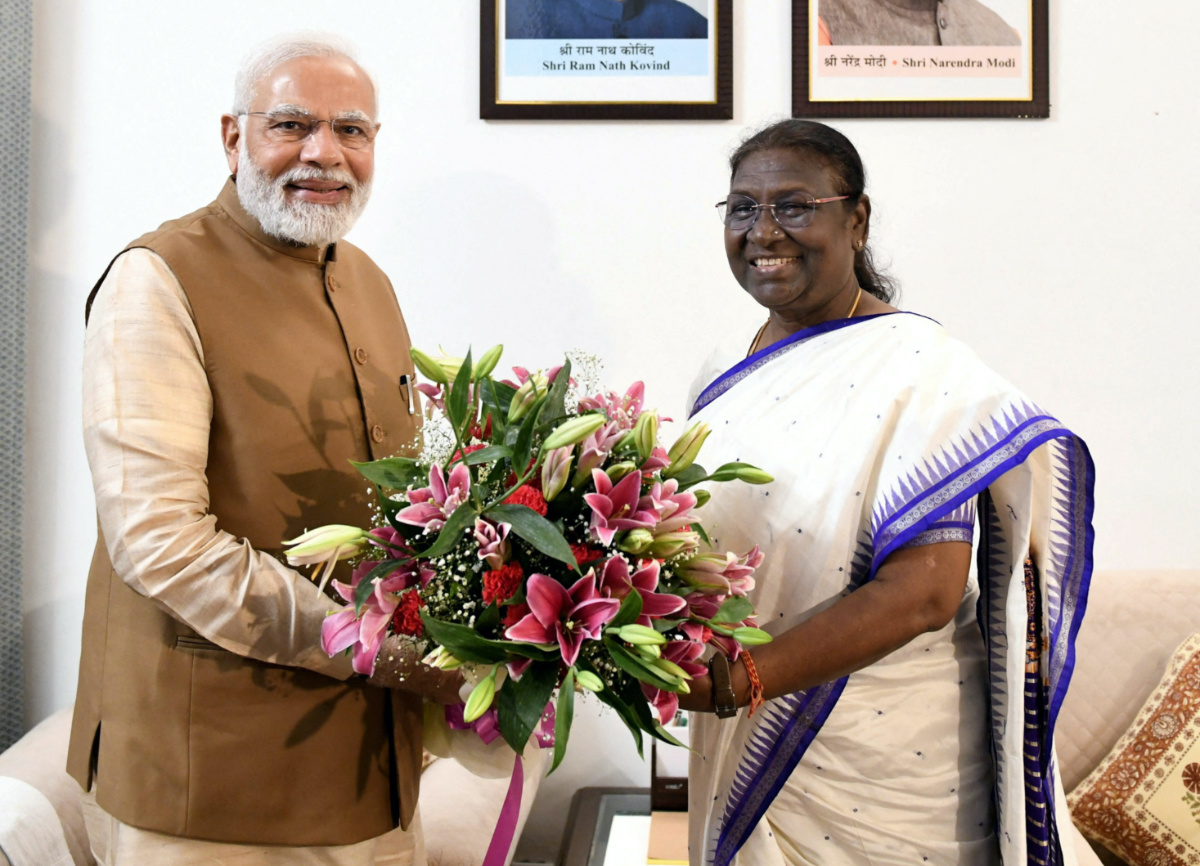Mumbai, India
Reuters
Lawmakers chose India’s first president from the country’s tribal communities on Thursday, which could boost the appeal of Prime Minister Narendra Modi’s party among marginalised groups ahead of the 2024 general election.
Droupadi Murmu, a 64-year-old teacher turned politician, will be the second woman to hold the largely ceremonial role as head of the republic when she takes office on 25th July at the start of a five-year term.

India’s Prime Minister Narendra Modi congratulates Droupadi Murmu after she was elected as the country’s first president from the tribal community, in New Delhi, India, on 21st July. PICTURE: India’s Press Information Bureau/Handout via Reuters.
More than 4,500 state and federal lawmakers voted in the presidential election on Monday and ballots were counted on Thursday. Murmu’s victory was assured as she was backed by Modi’s Bharatiya Janata Party, which dominates federal and state politics.
“A daughter of India hailing from a tribal community born in a remote part of eastern India has been elected our President!” Modi said on Twitter.
Born into a family of the Santhal tribe from the state of Odisha, Murmu started her career as a school teacher and actively participated in community issues.
She later joined mainstream politics and served as a BJP state lawmaker in Odisha before becoming governor of the eastern state of Jharkhand.
Her election is seen as the BJP’s outreach to India’s tribal communities, which comprise more than eight per cent of its 1.4 billion people.
“The BJP will want to offset any anti-incumbency of the last 10 years in 2024, and one of the ways to do that is to go for a new vote-base,” political columnist Neerja Choudhary told Reuters.
Murmu beat the opposition candidate Yashwant Sinha, a former BJP finance minister and now a fierce critic of Modi, winning nearly twice as many votes.
The Indian President acts as the Supreme Commander of the Armed Forces but the Prime Minister holds executive powers. Murmu will take over from Ram Nath Kovind.
The President, nevertheless, has a key role during political crises, such as when a general election is inconclusive, by deciding which party is in the best position to form a government.






